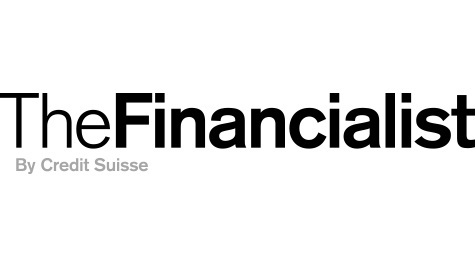Disruption is as old as commerce, but the pace is accelerating of late. The rise of the sharing economy threatens incumbents in retailing, banking, and car insurance, while new financial and environmental regulations are increasing costs for banks, utilities, and autos. Chinese businesses, their home country’s economic troubles notwithstanding, pose an increasing competitive threat in the global steel, aluminum, railway equipment, power generation, and bulk chemicals industries. ...
Read More »Is the Dollar Bull Market Over?
Even in the fast-changing world of foreign exchange, investors have been able to count on one thing for the last two years – that the interest rate policies of central banks would be the primary driver of currency movements. The so-called divergence trade hinged on the Federal Reserve’s tightening bias relative to the easing bias of the European Central Bank and Bank of Japan and was a fairly reliable organizing principle for foreign-exchange investors. On a trade-weighted basis, the...
Read More »An Age of Disruption
Disruption is either the gospel or the monster of the new millennium, depending which side of the trade you’re on. Every technology company worth its salt is aiming to disrupt something, and enough of them are succeeding that many conventional businesses face an existential threat. Why get a hotel room when you can rent a house or apartment on Airbnb? Why wait for a taxi when an Uber will come at the touch of a button? Why employ humans when there are faster, more precise robots? But...
Read More »In Conversation with Dr. Uli Sigg
Credit Suisse is the Leading Sponsor of the 10th Mobile M+ exhibition series, M+ Sigg Collection: Four Decades of Chinese Contemporary Art, a brand new exhibition that is on display in Hong Kong until 5 April 2016. The collection, which goes on show in Asia for the first time, is one of the most comprehensive and highly regarded collections of contemporary Chinese art. ------------------------------------------------------------------------------------ Subscribe to our channel:...
Read More »Argentina’s Got a New Attitude
What a difference an election can make. Just three months after Mauricio Macri became Argentina’s new president, the country is preparing to return to international debt markets for the first time in 15 years with a mid-April debt issuance of $11.68 billion. In lifting the long-standing injunctions that led Argentina to default in 2014, U.S. District Judge Thomas Griesa noted that, “President Macri’s election changed everything.” Argentina’s debt saga dates back to 2001, when the...
Read More »Survey: Institutional Investors Expect Hedge Fund Growth in 2016
Institutional hedge fund investors surveyed by Credit Suisse predict a 3.5 percent increase in hedge fund assets under management this year. That would push industry assets back over $3 trillion, a rebound from January, when assets declined to $2.96 trillion. January marked the first time industry assets dipped below $3 trillion since May, 2014. “Institutional investors remain committed to their hedge fund allocations and are optimistic for further growth in the industry during...
Read More »The never-before-told story of Chinese contemporary art
You’d need to read 100 books to get the same level of variety and emotion.” Dr. Uli Sigg - business journalist, entrepreneur and former Swiss ambassador to China - spent years amassing some 2,000 works by more than 350 Chinese artists. Watch the video for a glimpse into one of the foremost collections of Chinese contemporary art in the world, documenting the transformation of a society from emerging economy to global powerhouse.
Read More »M+ Sigg Collection: Four Decades of Chinese Contemporary Art
Credit Suisse is the Leading Sponsor of the 10th Mobile M+ exhibition series, M+ Sigg Collection: Four Decades of Chinese Contemporary Art, a brand new exhibition that is on display in Hong Kong until 5 April 2016. The collection, which goes on show in Asia for the first time, is one of the most comprehensive and highly regarded collections of contemporary Chinese art.
Read More »The Fall of Value and the Search for Quality
It’s been a tough couple of years for value investors. Over the long term, value stocks have outperformed momentum and quality in most regions, sectors, and size segments. Since 2014, however, the opposite has been true. Between the first quarter of 2014 and the first quarter of 2016, momentum investing has proved dominant. Cumulative excess returns for momentum stocks reached 12.9 percent during that time, while so-called “quality” stocks delivered 4.7 percent and value stocks just 0.8...
Read More »Oil Prices: Where Will They Go From Here?
Over the last 18 months, the price of a barrel of Brent crude has dropped from $115 to $35. And the effects of that steep decline have rippled far and wide: spreads between high-yield bonds and Treasuries have opened up; U.S. inflation expectations have plummeted, and cyclical stocks have handily underperformed defensive ones. Early on in the decline, the consensus opinion was that lower oil prices would serve as a catalyst for global economic growth. Consumers would save at the...
Read More » Credit Suisse
Credit Suisse





